(English version)
1. Airbus Beluga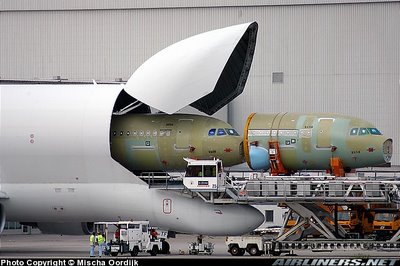 The Airbus Beluga (Super Transporter) is a version of the standard Airbus A300 wide-body airliner, modified to carry aircraft parts and over-sized or awkward cargo. It was officially called the Super Transporter at first, but the name Beluga became popular and has now been adopted as official.
The Airbus Beluga (Super Transporter) is a version of the standard Airbus A300 wide-body airliner, modified to carry aircraft parts and over-sized or awkward cargo. It was officially called the Super Transporter at first, but the name Beluga became popular and has now been adopted as official.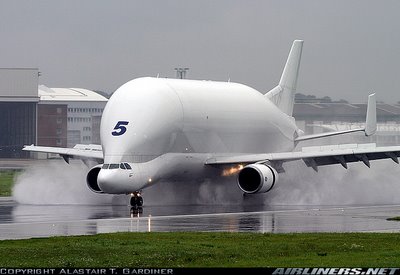 It is used to transfer pieces of other airplanes, even whole cabins. It is used to transfer industrial machinery or components of Space stations as well:
It is used to transfer pieces of other airplanes, even whole cabins. It is used to transfer industrial machinery or components of Space stations as well:
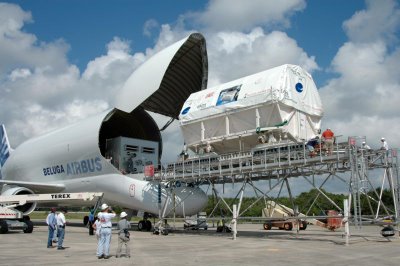
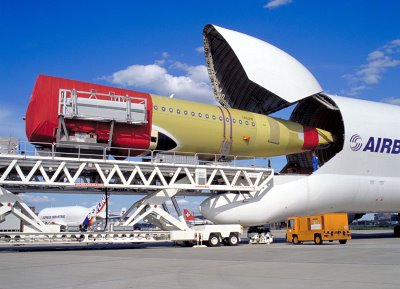
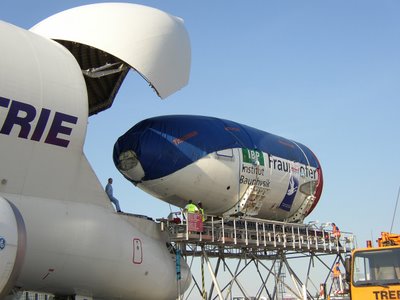 The Beluga's freight compartment is 7.4 metres in diameter and 37.7 metres long; maximum payload is 47 tons.
The Beluga's freight compartment is 7.4 metres in diameter and 37.7 metres long; maximum payload is 47 tons. 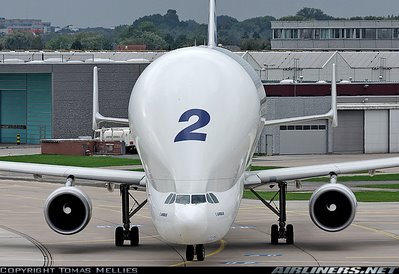
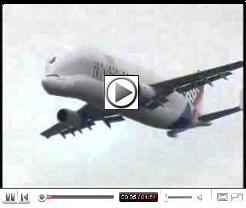 2. Antonov An-225
2. Antonov An-225 The Antonov An-225 is a strategic airlift transport aircraft which was built by Antonov, and is the world's largest powered aircraft.
The Antonov An-225 is a strategic airlift transport aircraft which was built by Antonov, and is the world's largest powered aircraft.
It measures 84 meters in length (11 more than the A380) and his lifting capacity is of 250 tons. Antonov are used for the transport of very heavy loads , as train wagons...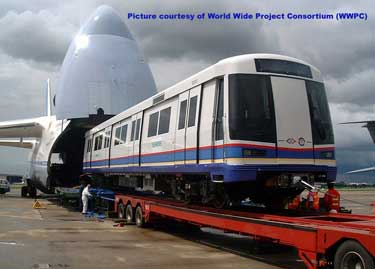 big trucks...
big trucks...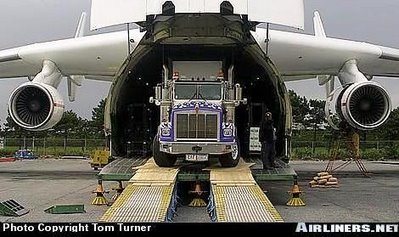 and even Skycranes!
and even Skycranes!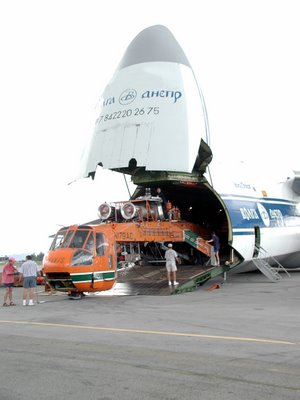 The design, built to transport the Buran orbiter, was an enlargement of the successful An-124 Ruslan. Mriya (Мрія) means "dream" (inspiration) in Ukrainian.
The design, built to transport the Buran orbiter, was an enlargement of the successful An-124 Ruslan. Mriya (Мрія) means "dream" (inspiration) in Ukrainian.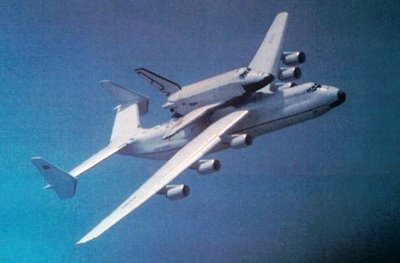 3. Boeing 747 Shuttle Carrier
3. Boeing 747 Shuttle Carrier
The Shuttle Carrier Aircraft (SCA) are two extensively modified Boeing 747 jetliners that NASA uses to transport a space shuttle orbiter. 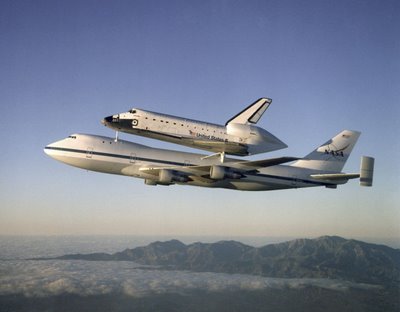 The SCAs are used to ferry space shuttles from landing sites back to the launch complex at the Kennedy Space Center, but on August 12, 1977, the first free flight by the prototype space shuttle orbiter Enterprise was successfully flown at NASA's Dryden Center.
The SCAs are used to ferry space shuttles from landing sites back to the launch complex at the Kennedy Space Center, but on August 12, 1977, the first free flight by the prototype space shuttle orbiter Enterprise was successfully flown at NASA's Dryden Center.
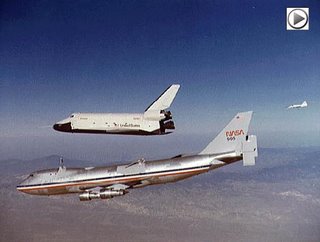 4. Giant planes comparison
4. Giant planes comparison
Finally, a special mention to other sky giants as the "Spruce Goose", Lockheed C-5 Galaxy or Myasishchev VM-T. Here you can check the giant planes comparison from Wikipedia.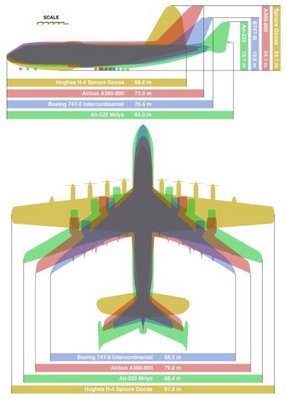
- NASA testing at Dryden center
- Skycranes
- Underwater explosions
- Ekranoplanes
- Aircraft carriers
* Atention!: Some of these pics belong to Airliners.com. All rights reserved. Do not copy any image without permission of the authors. Special thanks to: Alistair T. Gardner, Tom Turner, Mischa Oordijk and Tomas Mellies
Giant airplanes
14 noviembre 2006
Escrito por Aberrón a las 8:16 | 5 comentarios »














